- UN Secretary-General António Guterres
- France: Ambassador Jérôme Bonnafont
- Bahrain: Ambassador Jamal Fares Al-Ruwaie
- Russia: Ambassador Vassily Nebenzia
- China: Ambassador Fu Cong
- Colombia: Ambassador Leonor Zalabata Torres
- U.S.: Ambassador Mike Waltz
- Denmark: Ambassador Christina Markus Lassen
- Pakistan: Ambassador Asim Iftikhar Ahmad
- Greece: Ambassador Aglaia Balta
- Somalia: Deputy Ambassador Mohamed Rabi Yusuf
- Panama: Ambassador Eloy Alfaro De Alba
- Latvia: Ambassador Sanita Pavļuta-Deslandes
- U.K.: Ambassador James Kariuki (Security Council President)
- Iran: Ambassador Amir-Saeid Iravani
- Israel: Ambassador Danny Danon
- United Arab Emirates: Abdulaziz Nasser Al-Shamsi (on behalf of the League of Arab States)
Remarks from the Secretary-General
Prior to the meeting, UN Secretary-General António Guterres issued the following statement: I condemn today’s military escalation in the Middle East. The use of force by the United States and Israel against Iran, and the subsequent retaliation by Iran across the region, undermine international peace and security. All Member States must respect their obligations under international law, including the Charter of the United Nations. The Charter clearly prohibits “the threat of the use of force against the territorial integrity or political independence of any state, or in any other manner inconsistent with the Purposes of the United Nations.” I call for an immediate cessation of hostilities and de-escalation. Failing to do so risks a wider regional conflict with grave consequences for civilians and regional stability. I strongly encourage all parties to return immediately to the negotiating table. I reiterate that there is no viable alternative to the peaceful settlement of international disputes, in full accordance with international law, including the UN Charter. The Charter provides the foundation for the maintenance of international peace and security.Related Links
- Get to know Article 2 of the UN Charter
- Why the Strait of Hormuz matters
- Learn about the UN’s humanitarian work inside Iran
The AI future isn’t coming – it’s already here. It’s fast-moving, high-stakes and largely ungoverned.
The Domestic Governance Gap
Since ChatGPT debuted in 2022, America has led the world in AI innovation – from developing advanced models and chips to building cloud infrastructure. But Washington still lacks a clear national rulebook. Congressional concern is not the problem. Lawmakers across the spectrum agree AI poses real risks, including privacy violations, election interference and national security threats. In 2025 alone, President Trump issued seven AI-related executive orders and Congress more than 150 AI-related bills. No laws, however, were passed. With stalemate at the federal level, states have forged ahead. Last year, every U.S. state introduced AI legislation, and dozens enacted new rules governing issues such as algorithmic bias, automated decision-making and intellectual property. The result has been a patchwork of policies that vary widely across the country, forcing tech companies to tailor their operations to each jurisdiction – even though the technologies themselves operate across borders.In 2025 alone, President Trump issued seven AI-related executive orders, Congress more than 150 AI-related bills and every U.S. state introduced AI legislation.At the same time, tensions between government and industry are intensifying. Defense officials want broader military AI integration, while some companies resist relaxing safeguards that could enable autonomous weapons or mass surveillance. Meanwhile, everyday uses — from workplace monitoring to synthetic political videos — are raising ethical questions faster than policymakers can answer them. Public opinion reflects the uncertainty. Americans want AI’s benefits but also strong protections, and many doubt either government or industry can strike the right balance alone. A 2025 Pew Research Center survey found experts broadly optimistic about AI’s long-term impact, while the public remains wary; most Americans are more concerned than excited, and only about one-quarter expect personal benefit. Majorities also worry regulation will fall short rather than go too far.
A majority of Americans worry AI regulation will fall short rather than go too far... and doubt Washington can regulate AI effectively.Low trust in institutions compounds the problem. Many Americans doubt Washington can regulate AI effectively and question whether tech companies will police themselves.
Where the United Nations Fits
It's against this backdrop that the United Nations comes in. The UN is working to coordinate national approaches using a model that has succeeded in other high-stakes domains such as aviation safety, telecommunications and nuclear nonproliferation: national laws anchored by shared international standards. The cornerstone of these efforts is the Global Digital Compact, negotiated in 2024. While not legally binding, it establishes common principles for safe and trustworthy digital technologies, including AI. Such frameworks give governments a baseline for policymaking across vastly different political systems. Two additional initiatives are emerging. An Independent International Scientific Panel on AI would provide authoritative assessments of technological advances and risks – a global source of expertise for governments struggling to keep pace. A Global Dialogue on AI Governance would create a standing forum where governments, companies and researchers can coordinate responses as new challenges arise. And for Washington, engagement — more importantly, U.S. leadership in these UN initiatives — offers tangible benefits. First, it reduces fragmentation. Without coordination, companies can relocate to jurisdictions with weaker oversight, standards can diverge to the point systems cannot operate across markets and countries with limited regulatory capacity can become testing grounds for high-risk technologies.Without coordination, companies can relocate to jurisdictions with weaker oversight... and limited regulatory capacity.Second, global standards shape market access. If rules are written without U.S. participation, American firms may be forced to comply with frameworks designed elsewhere. Engagement helps ensure international norms reflect U.S. interests, technological realities and democratic values. Third, cooperation enhances national security. Shared expectations for military AI, cyber operations and autonomous systems can reduce the risk of miscalculation or escalation. Coordinated responses to disinformation and synthetic media are especially critical, since election interference and online manipulation don't respect borders. Finally, engagement preserves U.S. influence at a moment when the rules of the AI age are still being written. If Washington steps back from international forums, others will fill the vacuum – shaping standards and technical requirements that could disadvantage American companies, dilute democratic safeguards and embed values at odds with U.S. interests.
Engagement preserves U.S. influence at a moment when the rules of the AI age are still being written.
Why Engagement Strengthens American Power
The United States faces a paradox: it leads the world in AI innovation but lacks a comprehensive governance strategy even as AI’s impacts cross every frontier. Working through the UN ensures AI governance reflects American interests and values. Because in a world where AI cannot be governed by any nation alone, engagement is not about ceding authority. It's about multiplying it. [post_title] => Why the U.S. Needs the UN in the Age of Artificial Intelligence [post_excerpt] => As AI rapidly reshapes daily life, the United Nations’ push for credible guardrails offers Washington a way to align global standards, reduce cross-border risks and ensure emerging rules reflect American interests. [post_status] => publish [comment_status] => closed [ping_status] => closed [post_password] => [post_name] => why-the-us-needs-the-un-in-the-age-of-artificial-intelligence [to_ping] => [pinged] => [post_modified] => 2026-02-28 16:38:44 [post_modified_gmt] => 2026-02-28 16:38:44 [post_content_filtered] => [post_parent] => 0 [guid] => https://betterworldcampaign.org/?p=16929 [menu_order] => 0 [post_type] => post [post_mime_type] => [comment_count] => 0 [filter] => raw ) [2] => WP_Post Object ( [ID] => 16905 [post_author] => 5 [post_date] => 2026-02-24 11:23:16 [post_date_gmt] => 2026-02-24 11:23:16 [post_content] => Two years ago, we interviewed BWC Executive Director Jordie Hannum about his travels to Ukraine during the war. At the fourth anniversary of Russia’s full-scale invasion, we checked back in to assess where things stand.Q: When we first spoke, you described Ukraine’s national mood as resilient. Does that still feel true today?
Four words: frozen river dance parties! That is, in the capital of Kyiv. In recent months, there have been DJs and dancing on a frozen river to keep bodies and spirits warm after relentless Russian strikes on Ukraine's energy grid. This is just one example to illustrate that the resilience I witnessed is still very much in evidence, and it’s especially remarkable given Ukrainians have been living through a brutal winter. Strikes on cities and critical civilian infrastructure have left millions without electricity and heating for months, even as temperatures have reached minus four degrees. The last year was also the deadliest for civilians in Ukraine since 2022 – with more than 2,500 civilians killed.The last year was the deadliest for civilians in Ukraine since 2022 – with more than 2,500 civilians killed.
Q: Much of your work focuses on U.S. funding for programs that have been a lifeline for Ukrainians – many of which faced cuts over the past year. How has the shifting funding landscape in Washington affected conditions in the country?
The cuts have impacted the response on the ground and more importantly, the lives of so many. As it relates to the energy grid, hundreds of millions of dollars in U.S. energy assistance previously pledged to the country remain unreleased. The funds were originally slated to be distributed by the U.S. Agency for International Development (USAID) to help Ukraine import liquefied natural gas and rebuild energy infrastructure damaged by Russian strikes. For the World Food Programme (WFP) and other agencies, they have been forced to cut food rations due to funding constraints and increased security risks near the frontline. In fact, in the past year, WFP has had to cease assistance to more than one million people. Funding cuts have had a particularly devastating impact on girls and women. Due to cuts in 2025 and 2026, women-led organizations in Ukraine are projected to lose at least $53 million. As a result, women’s rights and women-led organizations stated they will be forced to stop life-saving services to at least 63,000 women and girls in need this year. Those hit hardest are those already most at risk: women and girls in frontline and rural areas, older women, women-headed households and women and girls with disabilities.Hundreds of millions of dollars in U.S. energy assistance previously pledged for the country remain unreleased... WFP has had to cease assistance to more than 1 million people... Women-led organizations in Ukraine are projected to lose at least $53 million.It must be noted, though, that thanks to partners including the European Union, WFP continues to support more than 600,000 Ukrainians in frontline regions every month with food and cash assistance. UN agencies like UNFPA are targeting almost one million women, girls and young people in Ukraine and neighboring refugee-hosting countries with life-saving sexual and reproductive health and gender-based violence services, in part by reinforcing national health systems and deploying mobile clinics.
Q: Russia has repeatedly targeted Ukraine’s energy infrastructure. What role is the UN playing to reduce the risks?
When I last visited in October 2024, I visited the second largest heating and power plant in Kharkiv. It had been hit twice by Russian missiles. On the day I visited, the plant had just been made operational again. Since that time, the UN – through its agencies – has mobilized emergency assistance to stabilize essential services. This report provides a good summary, but in short:- UNICEF is maintaining access to heating and safe drinking water, as both systems are often the first to shut down when electricity fails. By providing generators and backup equipment, the organization helps prevent shortages and reduce health risks.
- In parallel, WHO and UNICEF have supported hospitals, primary healthcare centers and schools with alternative power sources.
- UNHCR and partners have distributed winter insultation kits, heaters and cash support to help families buy firewood or other winter necessities and cover heating costs.
- In Kharkiv and other locales, UNDP and UNOPS have strengthened Ukraine’s energy resilience by delivering over $45 million in heating equipment, including solar panels and modular boiler houses to reduce reliance on centralized systems.
- Across the country, “invincibility points” – heated public spaces equipped with electricity, water and internet – have become critical during extended outages. UN agencies have supported those spaces with equipment and supplies so they can serve as safe havens when homes lose power.
Q: You’ve visited many of the world’s toughest conflict zones. What makes Ukraine distinct?
I'm always astounded by the resilience of individuals – from famine-stricken South Sudan to disaster-prone Nepal. In Ukraine, I've just had more opportunity to travel throughout the country and witness how they respond to atrocity and oppression. They have – in spades – the “courage to continue.”Q: UN Human Rights official Danielle Bell recently warned of growing global attention fatigue. With so many crises competing for focus, what would you say to Americans about why sustained engagement still matters?
The reasons to support international engagement are legion and nicely encapsulated here by our friends at the U.S. Global Leadership Coalition. To citizens and lawmakers, I say we "do well by doing good." In Ukraine and elsewhere, international assistance to the UN helps create a more stable, secure world, reducing the risk of conflict and disease, which directly benefits the economic and security interests of our nation. It is a virtuous circle, which only amounts to 1% of our budget. Alternatively, cutting aid today usually results in many more costs tomorrow. In places like Ukraine, it is significantly cheaper to provide housing repairs, generators and food aid now than it is to deal with a full-scale refugee crisis. Not to mention – as I noted when we last spoke – slashing assistance is the fastest way to break a nation’s spirit, leading to internal collapse. This failure, in turn, sends a signal to other global aggressors that our country lacks resolve, triggering further conflicts elsewhere. It is a vicious cycle we should avoid pursuing.We "do well by doing good." Assistance to the UN helps create a more stable, secure world, reducing the risk of conflict and disease, which directly benefits the economic and security interests of our nation.[post_title] => A Conversation with Jordie Hannum on Ukraine’s Resilience and Why U.S. Support Matters as War Enters 5th Year [post_excerpt] => Four years into the war, BWC’s Jordie Hannum says Ukrainian resilience endures and sustained U.S. support remains critical. [post_status] => publish [comment_status] => closed [ping_status] => closed [post_password] => [post_name] => four-years-on-a-conversation-with-jordie-hannum-on-ukraines-resilience-and-why-u-s-support-still-matters [to_ping] => [pinged] => [post_modified] => 2026-02-24 12:25:31 [post_modified_gmt] => 2026-02-24 12:25:31 [post_content_filtered] => [post_parent] => 0 [guid] => https://betterworldcampaign.org/?p=16905 [menu_order] => 0 [post_type] => post [post_mime_type] => [comment_count] => 0 [filter] => raw ) [3] => WP_Post Object ( [ID] => 16896 [post_author] => 5 [post_date] => 2026-02-23 21:14:22 [post_date_gmt] => 2026-02-23 21:14:22 [post_content] => On Feb. 19, the U.S. and the United Nations announced that Washington had paid roughly $160 million toward the nearly $4 billion it currently owes the organization. The funds are designated for the UN’s regular budget, which supports core operations such as diplomacy and humanitarian response. While the payment is a positive step, the U.S. still accounts for about 98 percent of unpaid contributions to the UN’s main budget. In addition, Washington owes roughly $1.8 billion for peacekeeping operations that help prevent violence, protect civilians and stabilize fragile regions. There are signs the gap could narrow. A bipartisan spending package signed on Feb. 3 provides near-full funding for UN regular and peacekeeping accounts in FY26, underscoring continued American engagement. The FY27 budget process is now underway, where future payments will be debated. UN Secretary-General António Guterres has warned that mounting arrears are straining the organization’s finances and operations. U.S. officials argue that paying dues is precisely what enables Washington to push for reforms and shape decisions that affect American security and interests worldwide. UN Member States’ assessed contributions are due on Feb. 1 each year, including payments to both the regular and peacekeeping budgets. Payments are publicly tracked on the UN’s Honor Roll, which lists countries that have paid their dues in full. [post_title] => U.S. Pays $160 Million Toward Nearly $4 Billion UN Debt [post_excerpt] => The U.S. has just paid $160 million of the roughly $4 billion it owes the United Nations — a down payment that continues to the leave the world body with a severe funding shortfall. [post_status] => publish [comment_status] => closed [ping_status] => closed [post_password] => [post_name] => us-pays-160-million-toward-nearly-4-billion-un-debt [to_ping] => [pinged] => [post_modified] => 2026-02-23 21:14:22 [post_modified_gmt] => 2026-02-23 21:14:22 [post_content_filtered] => [post_parent] => 0 [guid] => https://betterworldcampaign.org/?p=16896 [menu_order] => 0 [post_type] => post [post_mime_type] => [comment_count] => 0 [filter] => raw ) )
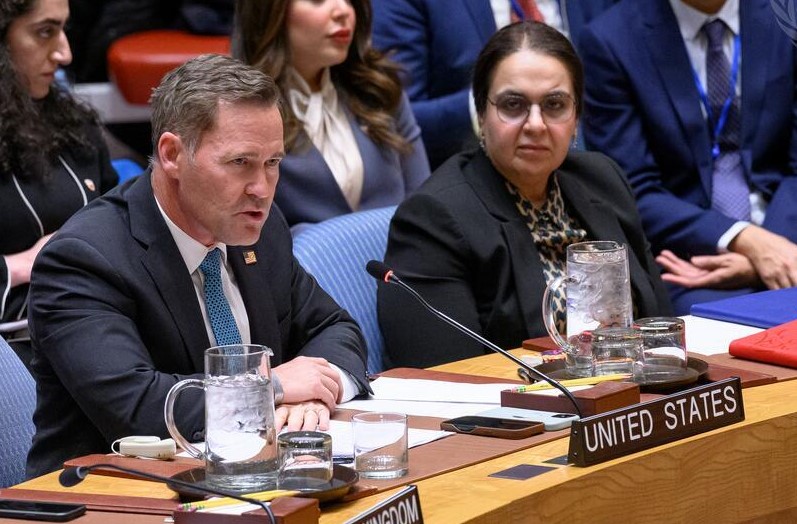
Blog, Peace and Security
UN Security Council Convenes Emergency Session on Crisis in the Middle East
02/28/2026

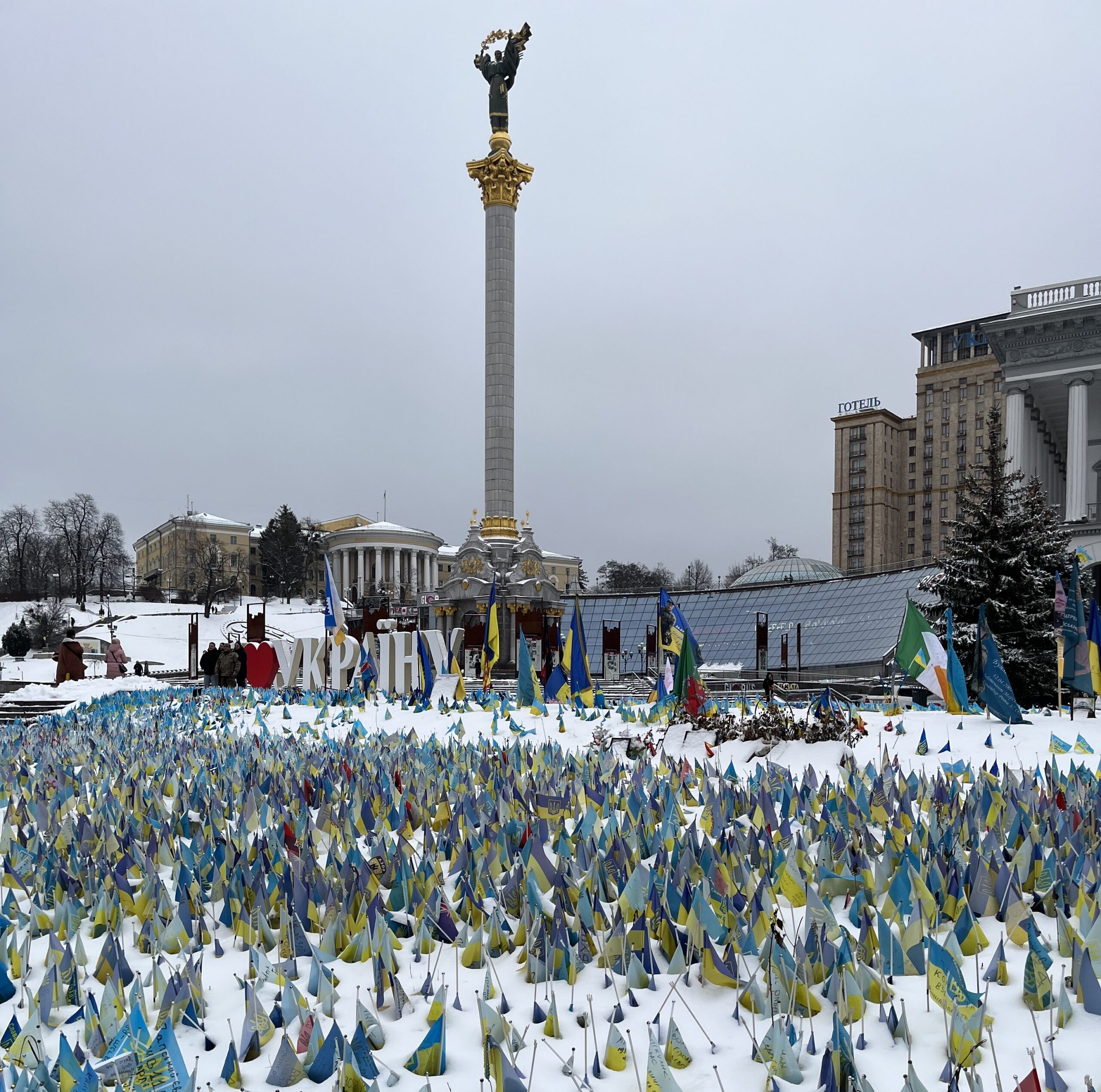
Blog, Humanitarian Affairs
A Conversation with Jordie Hannum on Ukraine’s Resilience and Why U.S. Support Matters as War Enters 5th Year
02/24/2026
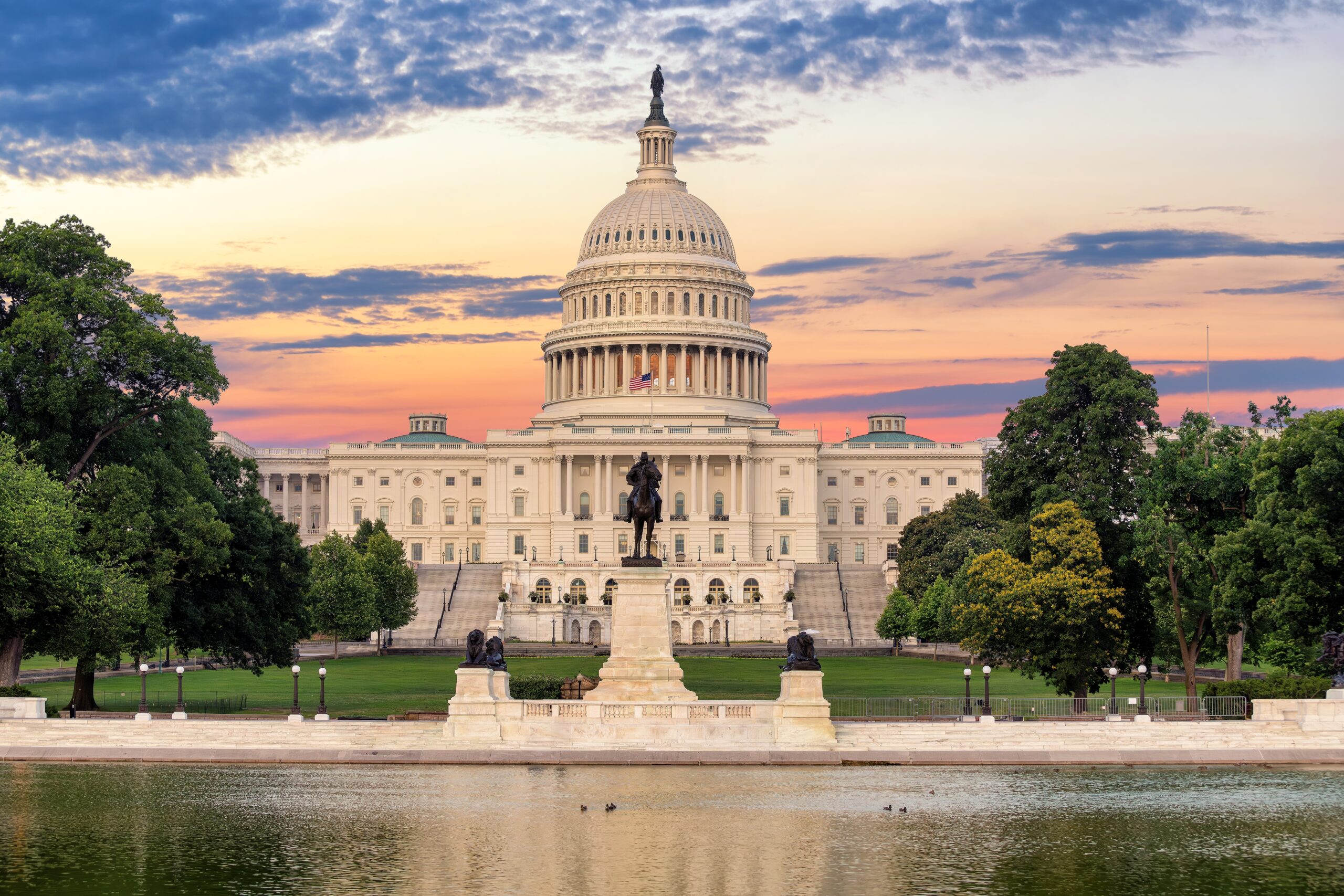

Human Rights, Peace and Security
Four Years into War, UN’s Top Human Rights Official in Ukraine Warns that Violations Are Escalating
02/20/2026
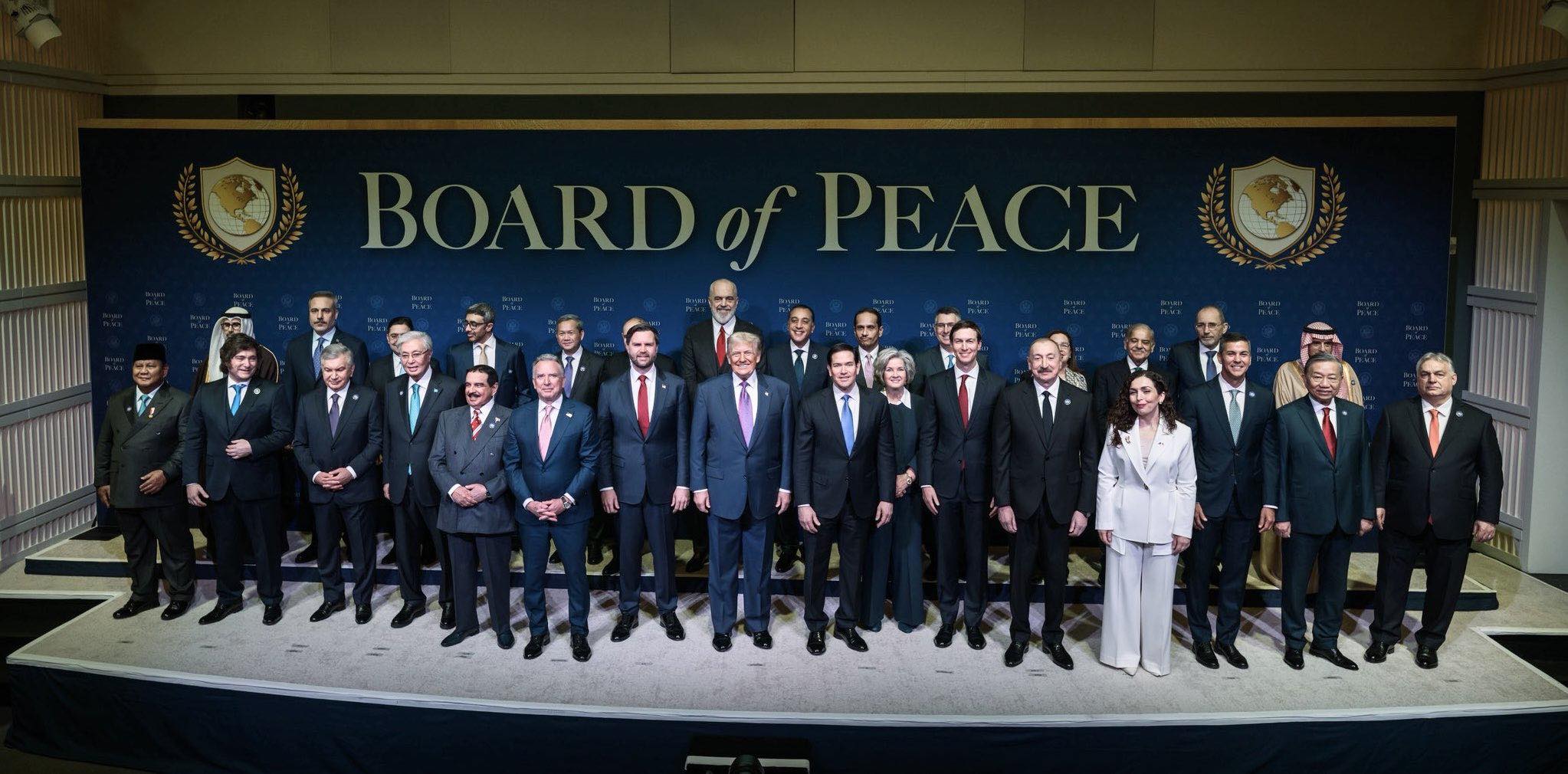
Blog, Humanitarian Affairs, Peace and Security
The Board of Peace: What We Know About Its Role, Reach and Limits
02/19/2026
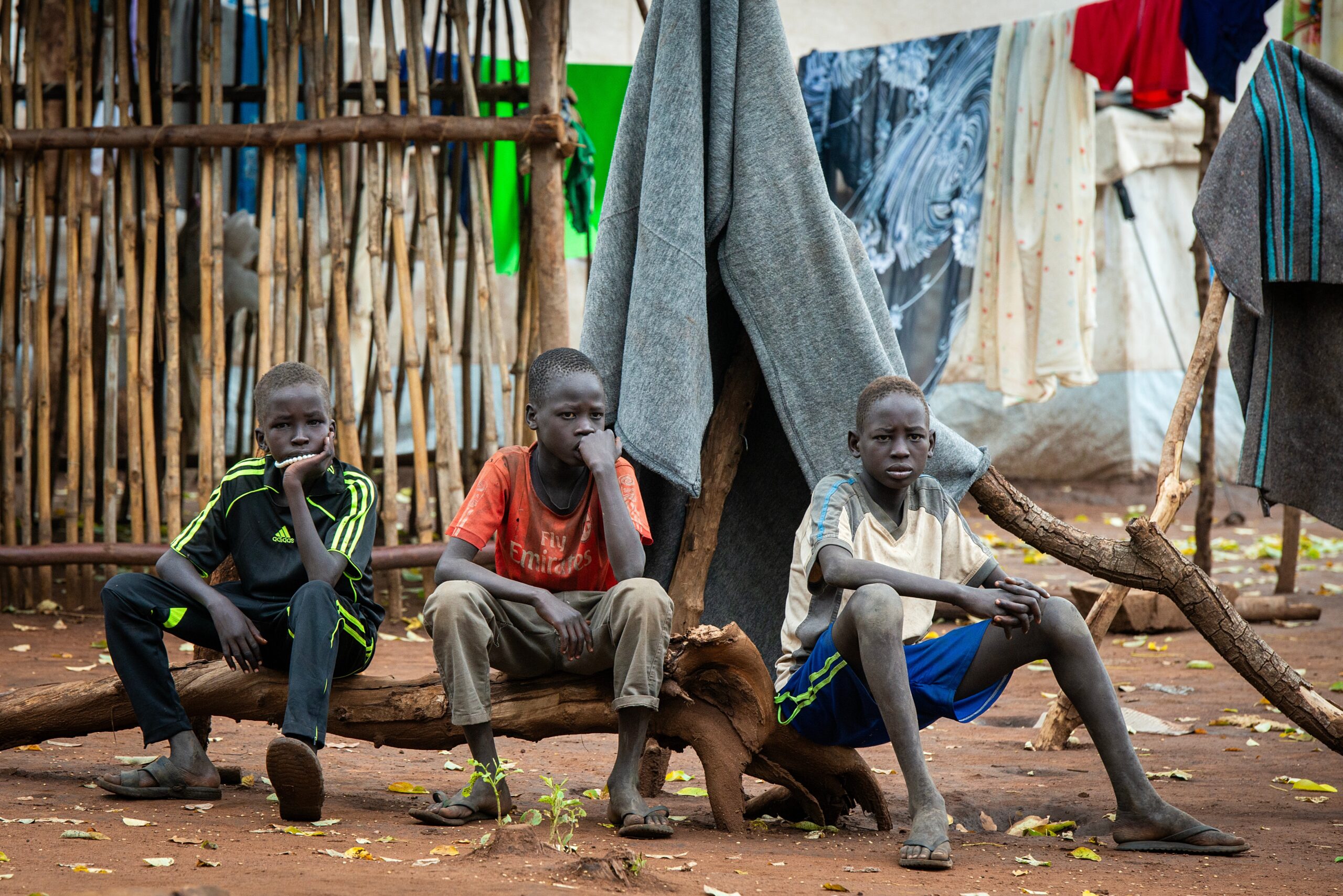
Humanitarian Affairs, Peace and Security
Sudan is in Crisis. A Revitalized Humanitarian Fund May Offer a Lifeline.
02/18/2026
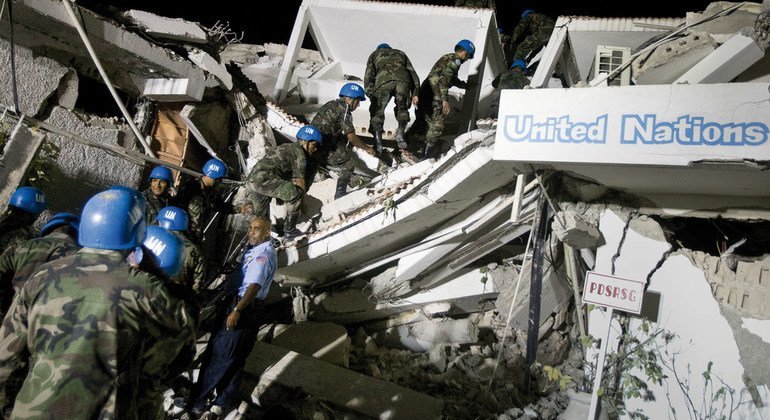
Congress, Humanitarian Affairs, Peace and Security
Capitol Hill Hearing Highlights Crisis in Haiti and New Gang Suppression Force
02/11/2026






